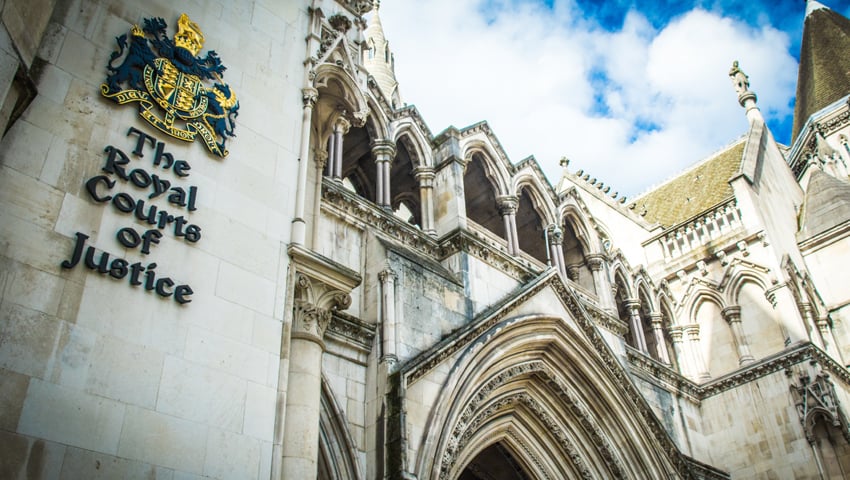For the second time in less than two years, the High Court has found the UK government’s inadequate climate strategy to be unlawful.
In a landmark High Court judgment, which followed legal challenges by Friends of the Earth, ClientEarth and Good Law Project, the government was once again found to have breached the Climate Change Act when it adopted the Carbon Budget Delivery Plan.
The Secretary of State is expected to now have to draw up a revised plan within 12 months. This must ensure that the UK achieves its legally binding carbon budgets, and its pledge to cut emissions by over two thirds by 2030, both of which the government is off track to meet.
In today’s judgment the High Court:
- Agreed with ClientEarth and Friends of the Earth that the Secretary of State was given “incomplete” information about the likelihood that proposed policies would achieve their intended emissions cuts. This breached section 13 of the Climate Change Act which requires the Secretary of State to adopt plans and proposals that she considers will enable upcoming carbon budgets to be delivered
- Agreed that the plan’s central assumption that all its policies would achieve 100% of their intended emissions cuts was wrong. The judge said the Secretary of State had acted irrationally, and on the basis of an incorrect understanding of the facts
- Agreed that the emissions savings relied on by the Secretary of State needed to be adjusted to reflect any expected shortfalls in savings due to risks and barriers to delivery. In other words, the quantified savings for each policy and proposal must represent what officials realistically expect to be achieved rather than just aspirational targets
- Agreed that the government had breached its duty on sustainable development. This duty requires the Secretary of State to be satisfied that the policies adopted “must contribute to sustainable development”. The Secretary of State had applied a test of “likely” which the court held was a lower threshold than required under the CCA
As a result of the three legal challenges, key information on the risk associated with the policies in the plan has now been released to the public and Parliament, which make clear that the plan is high-risk and reckless.
The government refused to publish documents known as risk tables, but the Good Law Project and Friends of the Earth published them in full after they were mentioned in court so they can now be scrutinised by Parliament, experts, journalists and the public.
The Carbon Budget Delivery Plan is the government’s strategy for meeting legally binding carbon budgets (a cap on the amount of greenhouse gases emitted in the UK over a five-year period) – as well as meeting the UK government’s international pledge to cut greenhouse gas emissions by over two thirds (68%) by 2030.
However, progress on meeting both the UK’s domestic climate targets, and its 2030 international goal is currently way off track and these crucial commitments are unlikely to be met based on current government policies.
The three organisations are calling for a new plan that ensures the UK’s national and international climate targets are met and that the huge economic benefits that building a greener future will bring are fairly shared across society.
This is the second time the government’s climate action plan has breached the Climate Change Act. Its previous plan, the Net Zero Strategy, was also ruled to be unlawful following legal challenges by the same three organisations in July 2022.
The Climate Change Committee’s assessment last year was that the government only has credible policies in place for under 20% of the emissions cuts needed to meet the sixth carbon budget.
In an unprecedented intervention, former Climate Change Committee chair, Lord Deben, provided a powerful written statement in support of Friends of the Earth’s legal challenge.
His evidence is referred to in the judgment and was highly critical of the process by which the CBDP was adopted – including the underlying assumption that everything would go to plan and all the policies would deliver their intended carbon cuts in full.
The court case also revealed that by its own assessment of its policies, government officials had “low/very low confidence” in their achievement of around half of the emissions reductions required to meet the sixth carbon budget and the 2030 pledge.
ClientEarth Senior Lawyer, Sam Hunter Jones, said, “The courts have now told the UK government not once, but twice, that its climate strategy is not fit for purpose. This time the court made it emphatically clear: the government cannot just cross its fingers and hope for high-risk technologies and uncertain policies to plug the huge gaps in its plans.
“No more pie in the sky – this judgment means the government must now take credible action to address the climate crisis with a plan that can actually be trusted to deliver and with numbers that can be relied on.
“The good news is that with crisis comes opportunity. As its own expert advisors have repeatedly said, the government has a golden opportunity to reduce emissions with actions that will also create jobs, improve services and bring down household bills.
“Actions such as public transport investment and a home insulation roll-out will create new jobs, lower costs and provide energy security now and for generations to come – as well as putting us on track to meet our legal targets.”
A full explanation of the High Court ruling can be found in this Friends of the Earth legal briefing
